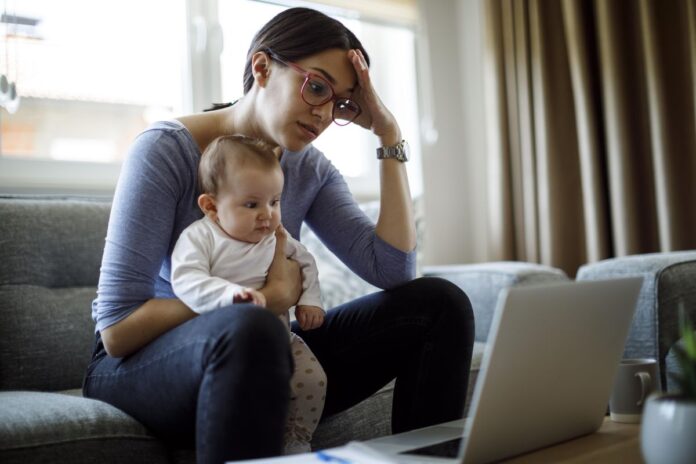New research has revealed four million children live in a family which has lost income since the start of the COVID-19 pandemic. Of those, 1.6 million children live in a family which has lost a third or more of its total household income, according to the findings.
The analysis, carried out by the University of Bristol and published today by Standard Life Foundation, finds over a quarter of UK families (27 per cent) are currently living on a reduced income as a direct result of a pandemic-related loss of earnings, compared with 17 per cent of households without children.
The findings show the drop in incomes is hitting families hard. Three million children in the UK now live in a family that is struggling to buy food and other essentials. On almost all indicators of financial hardship, the rate is doubled for families with children – compared to households without children.
The research, commissioned by Standard Life Foundation, was conducted in January 2021 and analysed by the university’s Personal Finance Research Centre. It is the fourth coronavirus financial impact tracker, a series of periodic cross-sectional surveys that examines household finances since the start of the pandemic.
As a result of the economic impact of the pandemic, families with dependent children are three times as likely as other households to have claimed Universal Credit since March 2020 (9 per cent of families vs. 3 per cent of households without children), and to still be claiming it in January 2021 (6 per cent vs. 2 per cent). This means about 1.2 million children live in families that have claimed Universal Credit because of the pandemic; 800,000 of whose parents are still claiming it.
Professor Sharon Collard, Chair in Personal Finance at the University of Bristol, the report’s lead author, said: “Just as we see an uneven distribution of financial distress in the general population, some families with children are also much harder hit than others. Families bearing the brunt include single parents; those on lower incomes; those in rented homes; and those with a parent whose daily activities are limited a lot by ill health or disability. Improving the financial resilience of such families should be a high priority as the UK moves out of the Covid-19 crisis, bringing knock-on benefits in the form of better outcomes for children.”
Mubin Haq, CEO of Standard Life Foundation, said: “Almost a third of children in the UK live in families who have experienced a drop in income due to the pandemic, and for many this will have long-term impacts. Families with children are twice as likely to be facing financial hardship compared to households without children and on a range of indicators are more severely affected. It will be distressing for many that 1 in 5 families are struggling to pay for food.
“Whilst much support has been provided by the UK government there has been a blinkered approach to children. During the pandemic, families with children were three times more likely to claim universal credit, and are much more dependent on this lifeline. Yet the £20 a week increase has only been extended for six months. This must be made permanent. However, we also need to see significant increases in child benefits, mirroring the approach in Scotland, if we are to improve the life chances of our children.”







